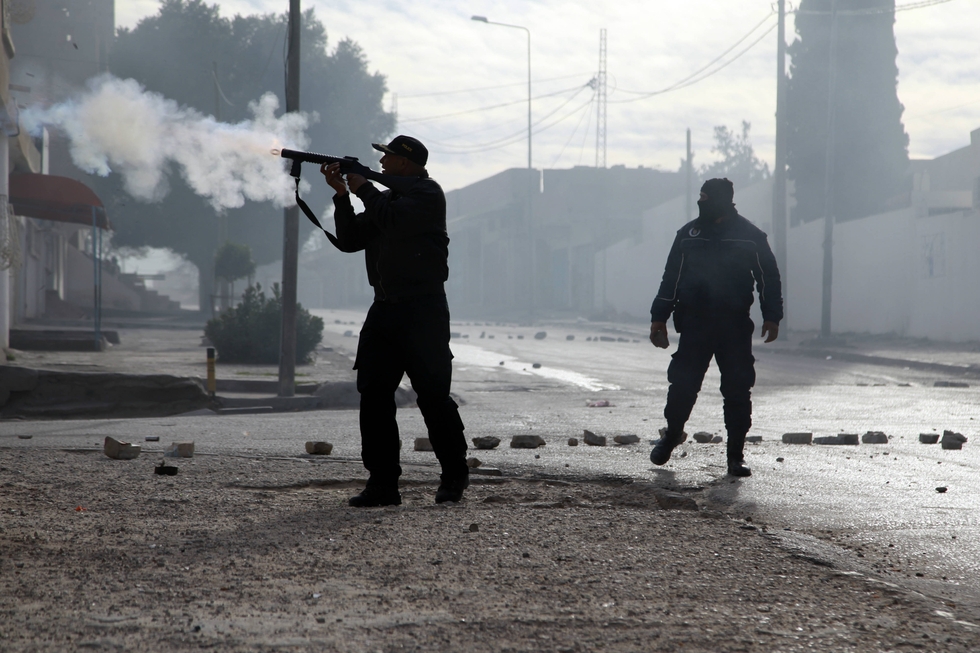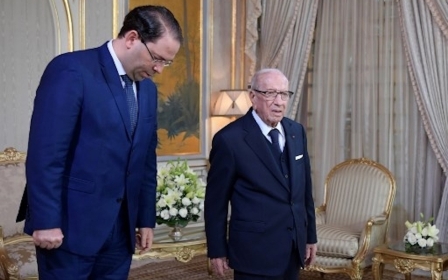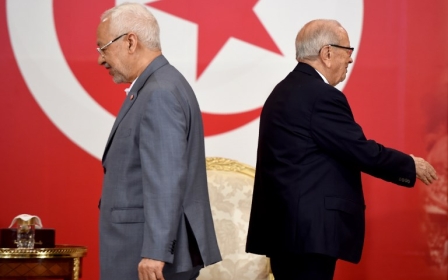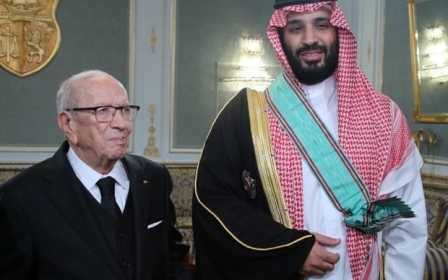Clashes in Tunisia as protests spread over journalist who set himself on fire

Clashes between protesters and security forces in an impoverished Tunisian city where a journalist burned himself to death over economic conditions spread to two other towns overnight, authorities said on Wednesday.
In the western city of Kasserine, police fired tear gas at stone-throwing youths in a second night of unrest, an AFP journalist said.
Clashes also broke out in the eastern town of Jbeniana, where a policeman was injured, and in Tebourba in the north where at least five people were arrested, national security spokesman Walid Hkima said.
The unrest follows the death of 32-year-old Abderrazk Zorgui on Monday, who set himself on fire in Kasserine.
The interior ministry said one person had been arrested for alleged involvement in the act of protest, which triggered an outpouring of anger in the city.
'Today I start a revolution'
Zorgui posted a video online before his self-immolation, describing his yearning for a revolution over corruption and poor living conditions.
He expressed his frustration at unemployment and the unfulfilled promises of Tunisia's 2011 Arab Spring revolution.
"For the sons of Kasserine who have no means of subsistence, today I start a revolution. I am going to set myself on fire," Zorgui said in the video.
Officials said Zorgui died of his injuries on Monday soon after being taken to hospital.
His action triggered demonstrations on Monday night in Kasserine that descended into violence, with police firing tear gas to disperse crowds blocking the main street, throwing stones at police and setting tyres ablaze.
Interior ministry spokesperson Sofiane Zaag said on Tuesday that six police officers were injured and several people arrested in Monday's protest.
It was the self-immolation of a street vendor in Tunisia in late 2010 in protest at police harassment that sparked Tunisia's revolution and the Arab Spring uprisings across the rest of the region the next year.
Kasserine was one of the first cities to rise up after the vendor's death, in protests that saw police kill demonstrators.
The unrest spread across the country and led to the overthrow of long-time ruler Zine el Abidine Ben Ali.
Despite the country's democratic transition since then, authorities are still struggling to improve poor living conditions in the face of rampant inflation and persistent unemployment.
Tunisia's national union of journalists called for a general strike on 14 January to mark the eighth anniversary of the revolution.
The clashes in Tunisia follow a week of protests in Sudan that were triggered by anger at rising living costs but have evolved into a broader call for the end of President Omar al-Bashir's 29-year rule.
New MEE newsletter: Jerusalem Dispatch
Sign up to get the latest insights and analysis on Israel-Palestine, alongside Turkey Unpacked and other MEE newsletters
Middle East Eye delivers independent and unrivalled coverage and analysis of the Middle East, North Africa and beyond. To learn more about republishing this content and the associated fees, please fill out this form. More about MEE can be found here.





